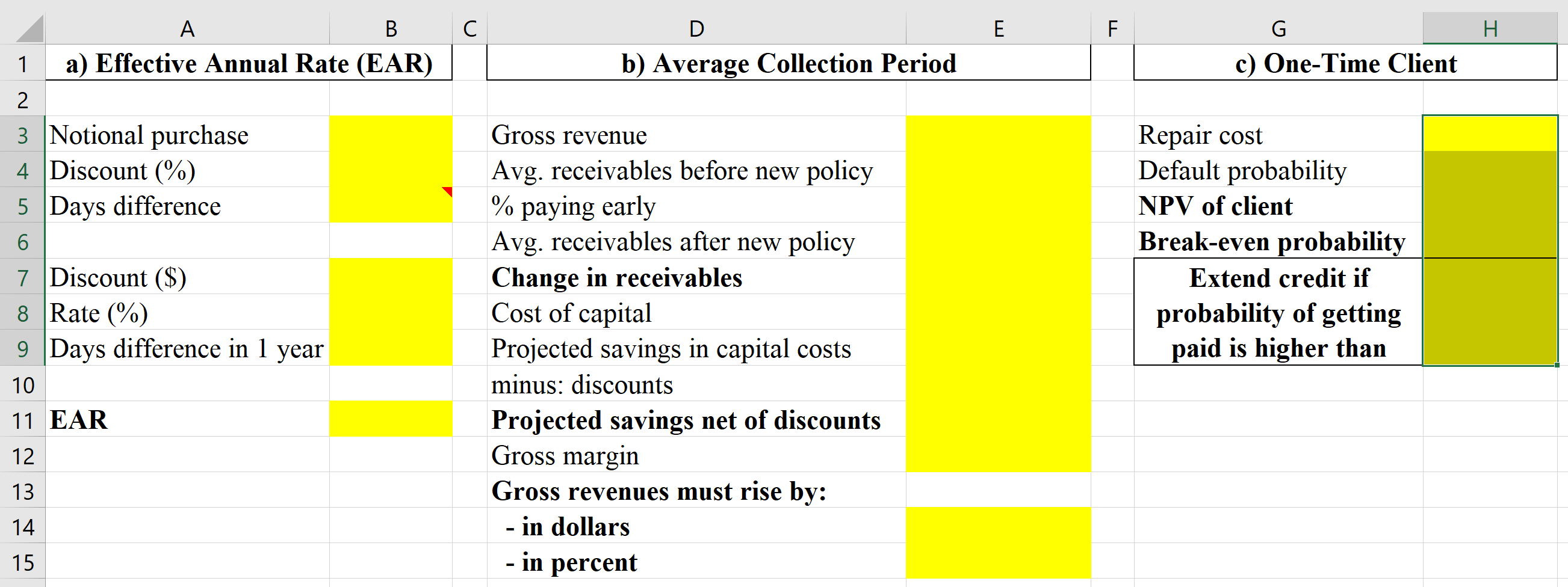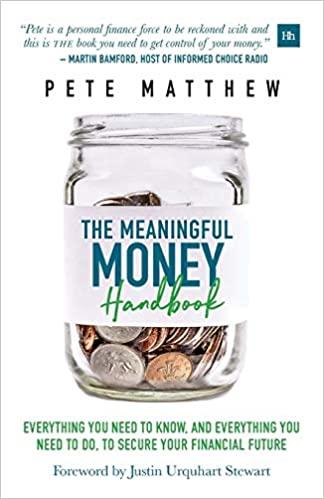Question
Question 2 consists of parts a, b, and c - a. Argo sells maintenance services to various private jet operators. For these, it demands payment
Question 2 consists of parts a, b, and c -
a. Argo sells maintenance services to various private jet operators. For these, it demands payment within 15 days. Argo is considering changing this policy to 1.1%/5, net 15. What is the implicit effective annual rate in this payment policy?
b. Argo's maintenance service business grosses some $33M per year before discounts and its average days receivable is 20 (unlike the overall business where this number is ~15). If 20% of Argo's clients opt to pay earlier and get the 1.1% discount, what will be the change in the service business's receivables? If Argo's cost of capital is 6%, what are the projected savings of this change in policy? If Argo's gross margin is 33%, by how much will gross dollar revenues have to rise to offset the loss from discounts? In percent?
c. A new client from out of town is quoted $5,500 for a repair. The service people ask you to approve this. You do a quick check on the client and assess a 10% default risk. What is the NPV of the client? What is the break-even probability? What is the minimum probability of collecting for you to approve the service?
IMPORTANT: PLEASE SHOW FORMULAS USED TO CALCULATE INSIDE THE FORMULAS ( I ONLY NEED TO COMPLETE THE INFORMATION IN THE YELLOW CELLS)

Step by Step Solution
There are 3 Steps involved in it
Step: 1

Get Instant Access to Expert-Tailored Solutions
See step-by-step solutions with expert insights and AI powered tools for academic success
Step: 2

Step: 3

Ace Your Homework with AI
Get the answers you need in no time with our AI-driven, step-by-step assistance
Get Started


